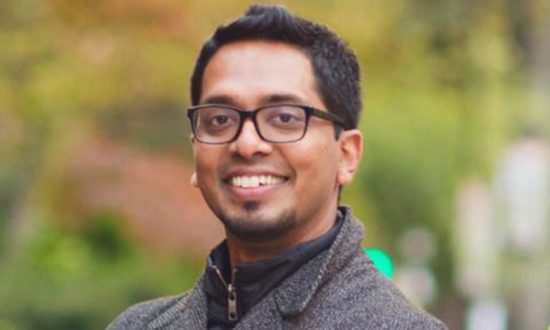Ashish started his career as a Software Engineer with Thomson Reuters Inc., building their flagship investment research solution – Thomson One. He then went on to take multiple executive roles in Program Management and AI before managing the Data Science and Engineering business in the Insurance vertical. Ashish is a university gold medalist in Biotechnology and later went on to study Bentley University’s flagship MBA in 2014 with a 100% scholarship. Ashish founded iSchoolConnect in 2017 to solve the pain point of many parents and children: getting unbiased, hassle-free admission in foreign colleges.
Technology has been long credited with transforming different facets of human life in unthinkable ways. Today, it permeates all aspects of our existence, even when its ubiquity goes unnoticed. The COVID-19 pandemic has dramatically increased the need for technological reform in the education sector, which has long clung to traditional education methods. From PreK to the university level, EdTech is revolutionizing education at every rung of the ladder.
While much has been said about how EdTech may significantly improve student learning outcomes, relatively less has been said about how it can substantially improve the admissions process for students applying to universities abroad. Let’s examine how EdTech affects the study abroad landscape.
Artificial intelligence is transforming the study-abroad landscape
Artificial Intelligence (AI), touted as the most significant breakthrough of the 21st century, is transforming processes across industries.
The higher education industry, which includes the study abroad segment, is not exempt from this technological change. Artificial intelligence (AI) has radically changed how study abroad applicants experience the application process. Whether finding institutions and schools, filling out application forms, checking papers, writing essays, or getting ready for interviews, AI has taken care of everything.
Deciding upon destination and university
Perhaps the most crucial aspect of the study abroad journey is deciding upon your destination country and preferred college. Internet searching can be pretty time-consuming when trying to narrow down the list, and there may still be questions regarding factors concerning the filtered institutions. This is where artificial intelligence (AI) and machine learning (ML) comes into play, helping to create a list of institutions based on a student’s search history, preferences, and profile.
To facilitate this process, EdTech companies have developed tools like recommendation engines that identify the best matches for a student’s profile and guide them through the decision-making process by outlining all important considerations like university rankings, tuition costs, and acceptance rates.
Even if receiving a list of colleges and universities based on preferences is a pleasant relief, students still have questions about these institutions that need to be answered immediately. Getting an immediate response to your inquiries is challenging because of the different time zones and working hours. AI-powered chatbots can be used in this situation to ensure a timely response and close the knowledge gap. Many universities and EdTech firms that support study abroad have integrated these chatbots.
Chatbots with AI imitate human conversations. They serve as a clearinghouse for frequently asked queries. The most commonly requested questions are seeded into the chatbots using machine learning and natural language processing techniques, enabling students to receive prompt responses.
How to apply
The application process for foreign universities may seem daunting for students. The first step is to narrow down the list of colleges and universities. However, applying to the universities that have been shortlisted is still a hassle. AI-based platforms can help with this by providing a unified application process that allows students to apply to different universities with a single application. The automated application and document verification system reduces the time and energy involved in the process. It expedites the process of applicant document verification. This means their application will be processed faster, ensuring good news sooner!
EdTech platforms also provide writing mentor tools that assist students in polishing their Statement of Purpose (SOPs) to perfection by removing grammar mistakes, checking for plagiarism, and even offering suggestions to improve their SOPs and essays.
Additionally, tools like virtual access to campus tours, events, and conversations with university representatives about financial aid, scholarships, career opportunities, etc., have changed the game regarding recruiting students.
Making dreams a reality
For a long time, students from privileged backgrounds and major metropolitan cities were the only ones who could dream of earning a degree from a prestigious overseas university. While there are many reasons why students choose to attend foreign universities—such as the desire for higher-quality education, strong pedagogy, upward income mobility of Indian households, and shortcomings in the Indian higher education system—AI-driven EdTech companies are making it easier for them to get through the otherwise tricky application and admissions processes.
The advent of EdTech in TIER 2 and TIER 3 cities is breaking down the barriers and helping aspiring students from TIER 2 and 3 cities with comprehensive guidance by connecting them with experienced counselors and coaches coupled with cutting-edge technology.
Evolving paradigms
Technology, especially AI, has undoubtedly made the procedure easier for applicants to study abroad. The hassle of researching colleges, searching the internet for trustworthy information, and going through the drawn-out application procedure has been dramatically diminished. Students can now apply to their dream institutions with a fraction of the effort required previously, thanks to AI-based EdTech companies operating in the industry and universities embracing revolutionary technologies. The cherry on top, of course, are the extra services that assist students with their writing and interview skills.


